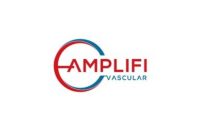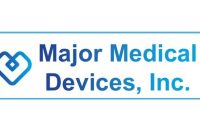PR News WireThis post was originally published on this site
— Polymer-based coil minimizes artifacts in imaging —
BOULDER, Colo., June 25, 2025 /PRNewswire/ — Embolization, Inc., has received 510(k) clearance from the U.S. Food and Drug Administration (FDA) for its Nitinol Enhanced Device (NED).
The NED is a vascular embolization device intended for arterial and venous embolization in peripheral vasculature. Vascular embolization is a minimally invasive procedure where a physician intentionally blocks a blood vessel using tiny materials such as coils, particles or glue. This stops bleeding, reduces blood flow to tumors, or prevents damage from abnormal blood vessels, and is often used instead of surgery because it’s safer, quicker to recover from and very precise.
Using proprietary shape-memory biocompatible polymers, Embolization’s coil devices achieve better vascular occlusion while minimizing artifacts in CT and MRI imaging that occur with traditional metal devices.
Embolization’s development represents the next generation in embolic coils, says Jim Kasic, CEO. “The 510(k) clearance – which gives the company the ability to market the device – is a defining moment and major step forward in bringing this important device to the medical community, and ultimately, to the patients who will benefit.”
Shorter occlusion times, tighter coil packs, minimal imaging artifact
Kasic notes that the NED will be the only polymer-based coil on the market; all other available coils are metal-based. “Our pre-clinical work has shown that the coils have substantially reduced imaging artifact, significantly outperforming competitive devices,” he says. The coils, he adds, are still radiopaque under fluoroscopy even though the CT/MRI imaging artifact is minimal.
Studies also show shorter occlusion times and tighter coil packs. “With fewer devices per procedure, lower recanalization rates and lower manufacturing costs, I believe the Embolization coil will substantially replace existing metal options,” states Kasic.
Further detailing use of the NED, Kasic explains that peripheral vasculature conditions such as great saphenous insufficiency, renal aneurism and other vessel anomalies require blocking the flow in the vein, artery or aneurism to prevent further damage, and to promote alternative flow pathways and healing. Interventional radiologists use surgical ligation when open surgery is indicated, but minimally invasive insertion of a coil into the vasculature has become a common approach to avoid open surgery.
Clinical benefits
Use of implantable metal coils has been a preferred approach, he says, but is less than ideal due in large part to the metal coil’s interference with imaging by CT scan or MRI. Metal coils can also be subject to failure through recanalization, which allows blood to flow again into the unwanted pathway.
In animal studies, Embolization’s non-metal coils benefits include:
- Reduction in shadowing or obscuration on imaging scans
- Easier repeat embolizations
- Faster, more reliable embolization
- Simplicity and easy of use, through a patented 1mm diameter implantation tool
Commercialization
With 510(k) clearance, Embolization will move toward commercialization and market introduction of the coil device. “We are more than anxious to move forward and participate in this growing market,” states Kasic. The global embolization devices market was valued at nearly $3.1 billion in 2024, and is projected to reach $5.9 billion by 2031.
The market for the embolization coils segment was valued at nearly $1.9 billion in 2024 and is projected to reach almost $3.7 billion by 2031.*
Embolization worked with Boulder iQ and its sister company, Boulder Regulatory and Quality, for the development and regulatory work for the NED. An expert contract consulting firm, the Boulder iQ family provides full, integrated services that life science developers need to bring their products to market.
Embolization, Inc. (www.embolizationinc.com)
Embolization, Inc., is a medical device company based in Boulder, Colorado. With expertise in radiopaque shape-memory biocompatible polymers, the business specializes in the development of minimally invasive medical devices for peripheral vascular and neurovascular uses in the interventional radiology market.
* Global Embolization Devices Market and Forecast (2021-2031), The Insight Partners
SOURCE Embolization, Inc.







